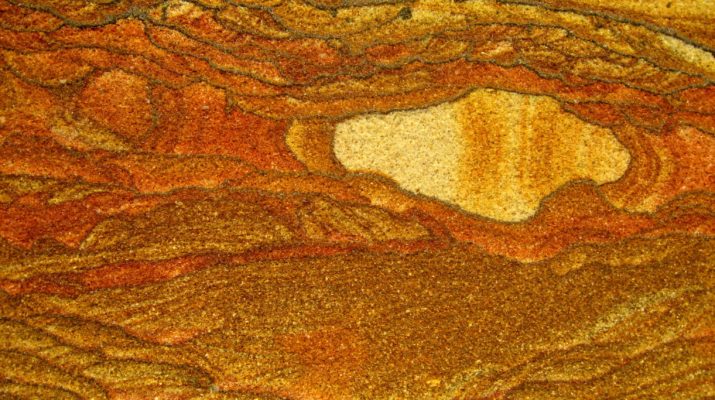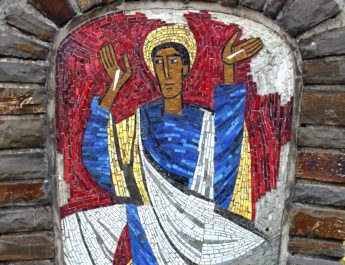Psalm 53
To the leader:A according to Mahalath.B A MaskilC of David.D
A “leader” = natsach. Properly, something that glitters from a distance. So, something that stands out, excels, has status/standing (such as a chief musician or superintendent of Temple services). This can also mean to be permanent or enduring.
B “Mahalath” = Machalath. 2x in OT. From chalah (to be worn; hence, being weak, sick, or afflicted; to grieve or, positively, to flatter or entreat). This is Mahalath, a part of the superscript of two psalms. It is probably a tune name and may mean “sickness.”
C “Maskil” = maskil. 13x in OT. From sakal (to consider or be prudent; to instruct, be an expert; dealing prudently, which implies success and prospering; can mean laying cross-wise). This is maskil or maschil. It is a poem used for instruction.
D “David” = David. From the same as dod (beloved, love, uncle); the root may mean to boil, which is used figuratively to describe love. So, this implies someone you love such as a friend, a lover, or a close family member like an uncle. David’s name likely means something like “beloved one.”
1 FoolsE say in their hearts,F “There is no God.”G
E “fools” = nabal. 18x in OT. From nabal (to be foolish, senseless, fall away, faint, wither, to be wicked, disgrace). This is foolish or a fool. It can also mean impious. Nabal, taken from this root, was the name of Abigail’s first husband in 1 Samuel 25.
F “hearts” = leb. May be related to labab (to encourage; properly, to be encased as with fat; used in a good sense, this means to transport someone with love; used in a bad sense, it can mean to dull one’s senses). This is the heart, courage, one’s inner self, the mind, or the will. Heart is only used in a figurative sense in the Old and New Testaments.
G “God” = Elohim.
They are corrupt,H they commitI abominable acts;
there is no one who doesJ good.K
H “are corrupt” = shachath. This is to go to ruin, perish, decay, batter, cast off, lose, one who destroys. This can be used in a literal or figurative sense.
I “commit abominable acts” = taab + evel. Taab is from toebah (abomination, loathsome, something morally disgusting or abhorrent). This is to abhor, despise, to reject, to act abominably. Evel is perhaps from aval (to deal unjustly, act in a wrongful way, a wrongdoer). This is injustice, wrong, moral evil, acts of violence, or unrighteousness.
J “does” = asah. This is to make, do, act, appoint, become in many senses.
K “good” = tob. From tob (to be pleasing, to be good). This is good, beautiful, pleasant, agreeable, bountiful, at ease. This word is used for goodness as a concept, a good thing, a good person. This can refer to prosperity and welfare as well as joy, kindness, sweetness, and graciousness. So, this is ethically good, but also enjoyably good.
2 God looks downL from heavenM on humankindN
L “looks down” = shaqaph. This is to look down or look out. Properly, it is looking by leaning out a window. It can be peeping or gazing.
M “heaven” = shamayim. Root may mean being lofty. This is sky, the air, or heaven. It is in a dual noun form so this might refer to the part of the sky where the clouds move on the one hand and the part beyond that where the sun, moon, and stars are on the other hand.
N “humankind” = ben + adam. Literally “children of humanity.” Ben is son, age, child. It is son in a literal or figurative sense. Adam is perhaps from adam (to be red, make ruddy); related to adamah (ground, dirt, earth). This is man, humankind, also Adam’s name. It refers to a human individual or humanity.
to seeO if there are any who are wise,P
who seekQ after God.
O “see” = raah. This is to see in a literal or figurative sense so stare, advise, think, view.
P “wise” = sakal. Related to “Maskil” in Superscript. See note C above.
Q “seek” = darash. This is seek, ask, inquire, care for. Generally it means following in pursuit or following as part of a search, which implies seeking or asking. Also used specially to mean worship.
3 They have all fallen away,R they are all alikeS perverse;T
there is no one who does good,
no, not one.
R “fallen away” = sug. 14x in OT. This is to turn back, aside, or away. Properly, it means to flinch, which implies moving away or going back. Literally it can mean retreat or figuratively it can mean backslide i.e. apostatize.
S “all alike” = yachad. From yachad (to join, be united). This is a unit, both, altogether, unitedness, alike.
T “are…perverse” = alach. 3x in OT. This is to be dirty or corrupt. It refers to moral decay.
4 Have they no knowledge,U those evildoers,V
who eat upW my peopleX as they eat bread,Y
and do not callZ upon God?
U “have…knowledge” = yada. This is to know, acknowledge, advise, answer, be aware, be acquainted with. Properly, this is to figure something out by seeing. It includes ideas of observation, recognition, and care about something. It can be used causatively for instruction, designation, and punishment.
V “evildoers” = paal + aven. Paal is to do, make, work, or accomplish. Generally refers to regularly repeated or systematic action – so, to practice. Aven has a root that may mean panting as one does when expending a lot of energy, especially when it comes to nothing. This is nothingness, trouble, sorrow, distress, wickedness, evil, harm, sorrow, misfortune, and mischief. It is also used specifically to refer to idols.
W “eat up” = akal. This is to eat, devour, burn up, or otherwise consume. It can be eating in a literal or figurative sense.
X “people” = am. From amam (to darken, hide, associate; creating shadows by huddling together). This is people or nation. It can be used specifically for a tribe, collectively of troops or armies, or figuratively to refer to a flock of animals.
Y “bread” = lechem. From lacham (to eat, feed on). This is bread, food, loaf. It can refer to food more generally for people or for animals.
Z “call” = qara. This is to call or call out – to call someone by name. Also used more broadly for calling forth.
5 There they shall be in great terror,AA
in terror such as has not been.
For God will scatterBB the bonesCC of the ungodly;DD
they will be put to shame,EE for God has rejectedFF them.
AA “be in great terror” = pachad + pachad. Pachad is to dread, be afraid, thrill, be in awe. This is properly feeling startled from a sudden sound or alarm and so, more generally, to be afraid. Pachad is from pachad (see note AA). This is dread, fear, awe, panic. It can also refer to what someone fears or dreads.
BB “scatter” = pazar. 10x in OT. This is to scatter or disperse – whether in a positive sense of sharing abundance or negatively as scattering through force.
CC “bones” = etsem. From atsam (vast, numerous, strong; to close one’s eyes, to make powerful; to break bones). This is self, life, strength, bone, or substance.
DD “ungodly” = chanah. This is decline, bending down, or living in tents. It can be camping to create a home or camping as a part of battle.
EE “put to shame” = bosh. Properly, this means to be pale, which implies shame, disappointment, or confusion.
FF “rejected” = ma’as. This is to reject, refuse, despise, disdain, reject, or spurn. It can also be to disappear or melt away.
6 O that deliveranceGG for IsraelHH would comeII from Zion!JJ
GG “deliverance” = yeshuah. From yasha (to deliver, defend, help, preserve, rescue, be safe. Properly, to be open, wide or free, which implies being safe. Used causatively, it means to free). This is salvation, deliverance, health, victory, prosperity.
HH “Israel” = Yisrael. Related to “God” in v1. From sarah (to persist, exert oneself, contend, persevere, wrestle, prevail) + el (God or god). This is God strives or one who strives with God; new name for Jacob and for his offspring. This refers to the people and to the land.
II “come” = natan. This is to give, put, set, offer. It is to give literally or figuratively.
JJ “Zion” = Tsiyyon. Related to tsyiyyun (signpost, monument); from tsavah (to charge someone, to command, order); from the same as tsiyyah (dryness drought); from a root meaning parched as desert, dry land. Zion can refer to a mountain in Jerusalem as well as another name for Jerusalem itself or the people.
When God restoresKK the fortunesLL of his people,
JacobMM will rejoice;NN Israel will be glad.OO
KK “restores” = shub. To turn back, return, turn away – literally or figuratively. Doesn’t necessarily imply going back to where you started from. This is also the root verb for the Hebrew word for repentance “teshubah.”
LL “fortunes” = shebuth. From shabah (to take captive, keep, a captor). This is prisoners or exile. It can also be used figuratively to describe a previous condition of prosperity.
MM “Jacob” = Yaaqob. From the same as aqeb (heel, hind part, hoof, rear guard of an army, one who lies in wait, usurper). This is Isaac’s son and his descendants. The name means heel-catcher or supplanter.
NN “rejoice” = gil. Properly, this is twirling around because of a strong feeling whether of rejoicing or from fear. This can be rejoice, be glad or joyful, or to cry.
OO “be glad” = samach. This is to rejoice or be glad. Properly, it is to brighten up in a literal or figurative sense.
Image credit: “Free texture: Sandstone evil eye” by David Farrant, 2008.




